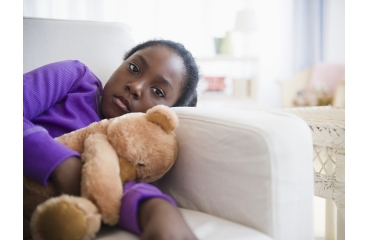Musculoskeletal Pain in Children: Care Instructions
Overview

Different problems with the bones, muscles, nerves, ligaments, and tendons in the body can cause pain. One or
more areas of your child's body may ache or burn, or feel tired, stiff, or sore. This is called
musculoskeletal pain.
This type of pain can have many different causes. In some cases, it's caused by another health problem.
Sometimes it's caused by an injury such as a strain or sprain. Or it may be caused by using one part of the
body in the same way over and over again (overuse).
Treatment depends on your child's symptoms and the cause of the pain, if known. Sometimes doctors can't find
a cause. But there are things you can do at home to help your child feel better.
Follow-up care is a key part of your child's treatment and safety. Be sure to make and go to all
appointments, and call your doctor if your child is having problems. It's also a good idea to know your
child's test results and keep a list of the medicines your child takes.
How can you care for your child at home?
-
If your child's pain is new, encourage your child to rest until your child feels better and to avoid
anything that makes the pain worse. Your child can gradually be more active when they child feel better and
the doctor says it's okay.
-
Be safe with medicines. Read and follow all instructions on the label.
-
If the doctor gave your child a prescription medicine for pain, give it as prescribed.
-
If your child is not taking a prescription pain medicine, ask your doctor if your child can take an
over-the-counter medicine.
-
Ask your child's doctor about using heat or cold for pain. Only use these when you can be near to
supervise your child.
-
Put ice or a cold pack on the area for 10 to 20 minutes at a time. Try to do this every 1 to 2 hours
for the next 3 days (when your child is awake). Put a thin cloth between the ice and your child's skin.
-
After 2 or 3 days, you can try applying heat to the area that hurts. Apply heat for 10 to 20 minutes
at a time, several times a day. You might also try switching between ice and heat.
When should you call for help?
 Call your
child's doctor now or seek immediate medical care if:
Call your
child's doctor now or seek immediate medical care if:
Watch closely for changes in your child's health, and be sure to contact your doctor if:
Current as of: July 17, 2023
Content Version: 14.0
Care instructions adapted under license by your
healthcare professional. If you have questions about a medical condition or this instruction, always ask
your healthcare professional. Healthwise, Incorporated disclaims any warranty or liability for your use of
this information.